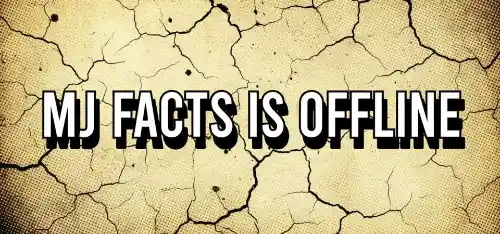The Danger of Normalising Michael Jackson's Behaviour

May 10, 2020
For decades, people have debated whether Michael Jackson was guilty of the serious allegations made against him. Some stand firmly in his defence; others remain convinced of his guilt. Regardless of where one stands, the debate is emotionally charged, deeply complex, and highly polarising.
Yet beneath the headlines and fan loyalty lies a more troubling issue: Jackson’s longstanding behaviour around children. Over many years, he developed unusually close relationships with young boys—connections that weren’t incidental or fleeting, but part of a recurring pattern. These behaviours, regardless of intent or legal outcome, raise serious questions about how society defines and enforces child safeguarding standards.
Behaviour That Crossed Boundaries
Supporters often argue that Jackson’s actions were misunderstood—a reflection of emotional immaturity or an attempt to reclaim a lost childhood. But even assuming good intentions, repeated behaviour that blurs or crosses established boundaries is never excusable. At best, his conduct fell short of what is considered safe or appropriate.
The concerns outlined below are not based on gossip or tabloids. They are drawn from court records, witness interviews, and well-documented sources—and they merit clear, honest consideration.
1. Prolonged and Frequent Contact with Young Boys
Michael Jackson spent an unusually large amount of time with children, particularly boys between the ages of 10 and 14. These interactions weren’t fleeting or confined to public events — they often included overnight stays, extended holidays, visits to Neverland Ranch, and time at the homes of these children.
While some defenders describe these interactions as innocent or whimsical — part of Jackson’s childlike personality — it’s important to acknowledge how such behaviour would be interpreted if he had not been a global superstar. In most other contexts, an adult seeking this level of intimacy with unrelated children would raise serious safeguarding concerns.
2. Unsupervised Sleepovers
It is a documented fact that Jackson shared his bedroom — and in some cases, his bed — with children, often without any adult or parental supervision. This behaviour was not only widely reported but confirmed under oath by former boys who testified in his defence, such as Wade Robson, Macaulay Culkin, and Brett Barnes.
Although Jackson routinely framed these sleepovers as innocent expressions of friendship or emotional comfort, the issue lies in the imbalance of power, maturity, and boundaries. Child safeguarding experts agree that this kind of physical closeness blurs essential lines. The question isn’t solely whether anything explicit happened, but whether such intimacy was ever appropriate or responsible — especially given Jackson’s status and influence.
3. Lavish Gifts and Preferential Treatment
Jackson routinely gave expensive gifts and extravagant attention to the children he was close with — from toys and gadgets to holidays and financial favours for their families. While such gestures might appear generous, they can foster a sense of loyalty, dependency, and emotional indebtedness in children.
Psychologists warn that this type of behaviour may condition a child to ignore or downplay concerning situations, and can make it difficult for parents to critically assess the relationship. In safeguarding contexts, such actions are often considered grooming — even if no criminal conduct is confirmed — because they manipulate emotional trust and obscure healthy boundaries.
The “Lost Childhood” Argument
Supporters of Jackson often argue that his troubled upbringing — shaped by an abusive father and a lack of a normal childhood — explains his bond with children. They claim he was simply trying to recreate the youth he never had.
However, no robust psychological evidence suggests that people who’ve experienced childhood trauma are naturally inclined to form intimate friendships with unrelated children later in life. In fact, countless individuals endure profound early-life adversity without resorting to boundary-crossing behaviour with minors. Trauma does not justify conduct that places children at risk.
Children should never be used as emotional crutches by adults. The idea that an adult might turn to a child for comfort, company, or therapy goes against basic psychological guidance. Professional mental health experts strongly advise against such dynamics because they place unfair emotional weight on the child and distort normal adult-child boundaries. It’s telling that many people only defend these interactions because Jackson was famous. If an ordinary adult engaged in the same behaviour, it’s unlikely they would be met with the same level of understanding.
Some fan communities have gone so far as to discredit or mock parents who voiced unease about Jackson’s relationship with their children. In doing so, they undermine the instinct many parents rely on to protect their children.
Current research on child protection makes it clear: if an adult exhibits unusual or overly intense interest in a specific child — particularly in the absence of adult oversight — it should always prompt scrutiny.
Below are some examples:
A discerning question to ask yourself: Who do you share your free time and vacation with? Paedophiles and ephebes are more likely to spend their free time with minors. Healthy adults will spend their free time with other adults. We vacation and recreate with those we feel most comfortable with, we spend our free time with those who are more like us. One of the big red flags for paedophilia is an adult vacationing and spending their free time with other people's children.
And:
Adults should be suspicious of someone who prefers the company of children, tends to be childlike in his play, frequently engages children in roughhousing or tickling activities, and somehow immediately becomes a close and trusted friend.
And:
Men who mingle with children and seem to be more interested in children than adults should be a “red flag” for aberrant behaviour. Parents should be duly concerned if they detect that their child is spending more time with an adult who seems “too good to be true” than with them.
And:
The interactions between the children and this minister included that he would hug children (“hug”), take certain children to lunch or dinner (“dinner”), sometimes wrestle with the children (“activities”), give some children candy and gifts (“gifts”), and one time at an overnight church retreat he slept in a bed with several young children (with other parents in the room).
Michael Jackson’s Own Words
A critical aspect of the concern surrounding Michael Jackson’s behaviour is that he didn’t just deny wrongdoing — he actively contributed to a narrative that downplayed risks and muddled important child safeguarding principles. Nowhere is this more evident than in the 2003 documentary Living with Michael Jackson, where several of his own comments raised eyebrows and set off alarm bells for many.
1. Blaming Others for Feeling Uncomfortable
In the documentary, Jackson repeatedly dismissed public concerns about his actions, implying that the problem didn’t lie with what he had done — but with those who interpreted his behaviour as disturbing. This kind of response is not uncommon among individuals accused of inappropriate conduct: shifting the blame from themselves onto the people who raise concerns.
Psychologists often refer to this as “blame displacement.” Rather than taking responsibility or reflecting on how his choices may have affected others — particularly vulnerable children — Jackson positioned himself as the misunderstood victim of public hysteria. This tactic, frequently seen in cases of boundary violations, works to disarm criticism and reframes suspicion as unfair persecution.
But intent does not erase impact. Even if he believed his actions were innocent, failing to acknowledge how they could be perceived — and how they might affect children emotionally — indicates a troubling lack of self-awareness and accountability.
2. Failure to Acknowledge the Importance of Boundaries
Another deeply concerning theme in Jackson’s public statements was his consistent resistance to the idea that clear boundaries are necessary between adults and children. He appeared to view rules and safeguards as unnecessary interruptions to “innocent” relationships — rather than essential protections.
Child safeguarding experts strongly disagree. Boundaries exist to protect everyone involved — especially in situations where there’s a large power imbalance, such as between a celebrity and a young fan. Adults who dismiss, mock, or refuse to respect those boundaries are often the very ones most deserving of closer scrutiny. Why would an adult, acting in good faith, object so strongly to limits that are designed to protect children?
When an individual continually refuses to respect normal cautionary lines, it raises legitimate doubts about their judgement and intentions.
3. Promoting the Dangerous Normalisation of Bed-Sharing
Perhaps the most controversial element in Living with Michael Jackson was his unapologetic endorsement of bed-sharing with unrelated children. He insisted that sleeping in the same bed with children was “what the world needs now” — framing it as a symbol of love, peace, and innocence.
While Jackson may have viewed this as harmless or even nurturing, the context matters greatly. Most child abuse does not occur at the hands of strangers — it happens in familiar, trusting relationships where boundaries have been eroded. Encouraging adults to normalise sharing beds with children (outside of immediate family and without supervision) risks creating an environment where real harm can go unnoticed or be rationalised away.
By publicly advocating this sort of interaction, Jackson inadvertently — or perhaps naively — set a precedent that could be exploited by predators seeking to justify inappropriate behaviour.
Conclusion
Whether Michael Jackson’s troubling interest in young boys was sinister in nature, or the result of a psychologically troubled yet harmless man, only the boys—now men—who spent time with him truly know the answer.
But this article isn’t solely about that. Rather, it invites us to consider a more grounded question: would his behaviour be deemed acceptable if he were just an ordinary man living on your street in a modest three-bedroom semi?
The answer, quite clearly, is no.
Fame and success should never be used to sanitise or excuse conduct that, in any other context, would raise serious concern. When we examine Jackson’s actions through the lens of everyday life—stripped of glamour, wealth, and global adoration—they cross lines that most people would find deeply unsettling.
We must resist any attempt to normalise such behaviour simply because he was a celebrity. Fame does not place someone above scrutiny, nor should it shield them from accountability. Like anyone else, public figures are capable of wrongdoing—acts that can have lasting and traumatic consequences.
While Jackson’s actions may not have led to a criminal conviction, they undeniably breached moral and ethical boundaries. In doing so, they created an environment in which vulnerable children could be taken advantage of—and potentially abused. That is not something society should tolerate under any circumstances.
With permission, the following article was translated and enhanced from The Truth about Michael Jackson.





